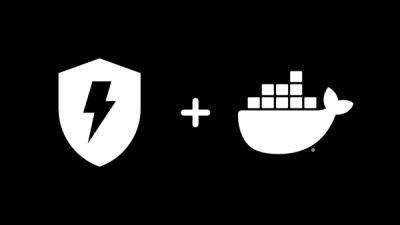Azure Core Tracing OpenTelemetry client library for Python
Getting started
You can enable distributed tracing in Azure client libraries by configuring the OpenTelemetry SDK.
OpenTelemetry is a popular open-source observability framework for generating, capturing, and collecting telemetry data for cloud-native software.
There are two key concepts related to tracing: span and trace. A span represents a single operation in a trace. A span can represent an HTTP request,
a remote procedure call (RPC), a database query, or even the path that your code takes. A trace is a tree of spans showing the path of work through
a system. You can distinguish a trace on its own by a unique 16-byte sequence called a TraceID. For more information on these concepts and how they
relate to OpenTelemetry, see the OpenTelemetry documentation.
Tracing with Azure Monitor OpenTelemetry Distro
Azure Monitor OpenTelemetry Distro supports tracing for Azure
SDKs by default. Just install and configure the distro and use Azure clients as usual.
from azure.monitor.opentelemetry import configure_azure_monitor
from opentelemetry import trace
configure_azure_monitor(
connection_string="<your-connection-string>"
)
from azure.storage.blob import BlobServiceClient
tracer = trace.get_tracer(__name__)
with tracer.start_as_current_span(name="MyApplication"):
client = BlobServiceClient.from_connection_string('connectionstring')
client.create_container('my_container')
The Azure Monitor OpenTelemetry Distro can be found in the azure-monitor-opentelemetry package.
Tracing with generic OpenTelemetry
Check out your observability provider documentation on how to enable distributed tracing with OpenTelemetry
or follow OpenTelemetry Python documentation on generic configuration.
In addition to common OpenTelemetry configuration, follow this steps to configure Azure SDKs:
Now you can use Azure Core OpenTelemetry Tracing plugin for Python as usual with any SDKs that are compatible
with azure-core tracing. This includes (not exhaustive list), azure-storage-blob, azure-keyvault-secrets, azure-eventhub, etc.
- Specify which tracing implementation Azure SDK should use in one of the following ways:
-
By setting AZURE_SDK_TRACING_IMPLEMENTATION environment variable to opentelemetry
(just make sure you use a fresh version of azure-core and azure-core-tracing-opentelemetry)
AZURE_SDK_TRACING_IMPLEMENTATION=opentelemetry
-
Alternatively, you can set it up in the code:
from azure.core.settings import settings
settings.tracing_implementation = "opentelemetry"
This configuration instructs Azure SDK clients to emit spans using global OpenTelemetry instance and
corresponding tracer provider.
There is no need to write any additional code to trace Azure SDK calls or pass trace context explicitly -
Azure SDKs and OpenTelemetry will do it for you.
Here's a full example:
from azure.core.settings import settings
settings.tracing_implementation = "opentelemetry"
from opentelemetry import trace
from opentelemetry.sdk.trace import TracerProvider
from opentelemetry.sdk.trace.export import ConsoleSpanExporter
from opentelemetry.sdk.trace.export import SimpleSpanProcessor
exporter = ConsoleSpanExporter()
trace.set_tracer_provider(TracerProvider())
trace.get_tracer_provider().add_span_processor(
SimpleSpanProcessor(exporter)
)
from azure.storage.blob import BlobServiceClient
tracer = trace.get_tracer(__name__)
with tracer.start_as_current_span(name="MyApplication"):
client = BlobServiceClient.from_connection_string('connectionstring')
client.create_container('my_container')
HTTP instrumentation
With the Azure Core OpenTelemetry Tracing plugin enabled, HTTP requests made by Azure SDK clients are typically instrumented via the DistributedTracingPolicy automatically. Since Azure Core handles HTTP instrumentation for Azure service calls, automatic HTTP instrumentation from other libraries such as opentelemetry-requests-instrumentation are suppressed to avoid duplicate spans from being created.
Troubleshooting
This client raises exceptions defined in Azure Core.
Contributing
This project welcomes contributions and suggestions. Most contributions require you to agree to a Contributor License Agreement (CLA) declaring that you have the right to, and actually do, grant us the rights to use your contribution. For details, visit https://cla.microsoft.com.
When you submit a pull request, a CLA-bot will automatically determine whether you need to provide a CLA and decorate the PR appropriately (e.g., label, comment). Simply follow the instructions provided by the bot. You will only need to do this once across all repos using our CLA.
This project has adopted the Microsoft Open Source Code of Conduct. For more information see the Code of Conduct FAQ or contact opencode@microsoft.com with any additional questions or comments.
Release History
1.0.0b12 (2025-03-20)
Features Added
- If a span exits with an exception, the exception name is now recorded in the
error.type attribute. (#34619)
- Added support for passing a schema version to fetch available attribute mappings and set the schema URL on the tracer's instrumentation scope. (#40161)
- Added additional span suppression logic to prevent unnecessary spans from being created. (#39994)
SpanKind.INTERNAL spans are suppressed if their parent span is of type SpanKind.INTERNAL, SpanKind.CLIENT, or SpanKind.PRODUCER.
- Update
OpenTelemetrySpan.change_context to also accept spans of type OpenTelemetrySpan. (#39994)
Bugs Fixed
- Fixed an issue where the original context was not properly restored after exiting an
OpenTelemetrySpan context in certain scenarios. (#39994)
1.0.0b11 (2023-09-07)
Bugs Fixed
- Fixed
OpenTelemetrySpan typing to correctly implement the AbstractSpan protocol. (#31943)
1.0.0b10 (2023-07-11)
Features Added
- Enabled the use of the
context keyword argument for passing in context headers of a parent span. This will be the parent context used when creating the span. (#30411)
Breaking Changes
- Remapped certain attributes to converge with OpenTelemetry semantic conventions (#29203):
x-ms-client-request-id -> az.client_request_id,x-ms-request-id -> az.service_request_id,http.user_agent -> user_agent.original,message_bus.destination -> messaging.destination.name,peer.address -> net.peer.name,
Other Changes
- Python 2.7 is no longer supported. Please use Python version 3.7 or later.
- Nested internal spans are now suppressed with just the outermost internal span being recorded. Nested client spans will be children of the outermost span. (#29616)
- When client spans are created, a flag is set to indicate that automatic HTTP instrumentation should be suppressed. Since azure-core already instruments HTTP calls, this prevents duplicate spans from being produced. (#29616)
- Schema URL is now set on the tracer's instrumentation scope. (#30014)
- Minimum
opentelemetry-api dependency bumped to 1.12.0.
- Minimum
azure-core dependency bumped to 1.24.0.
1.0.0b9 (2021-04-06)
- Updated opentelemetry-api to version 1.0.0
Link and SpanKind can now be added while creating the span instance.
1.0.0b8 (2021-02-08)
- Pinned opentelemetry-api to version 0.17b0
1.0.0b7 (2020-10-05)
- Pinned opentelemetry-api to version 0.13b0
1.0.0b6 (2020-07-06)
- Pinned opentelemetry-api to version 0.10b0
1.0.0b5 (2020-06-08)
- Pinned opentelemetry-api to version 0.8b0
- Fixed a bug where
DefaultSpan sometimes throws an AttributeError.
1.0.0b4 (2020-05-04)
link and link_from_headers now accepts attributes.
1.0.0b3 (2020-04-06)
Features
- Pinned opentelemetry-api to version 0.6b0
1.0.0b2 (2020-03-09)
Features
- Pinned opentelemetry-api to version 0.4a0
1.0.0b1
Features
- Opentelemetry implementation of azure-core tracing protocol



